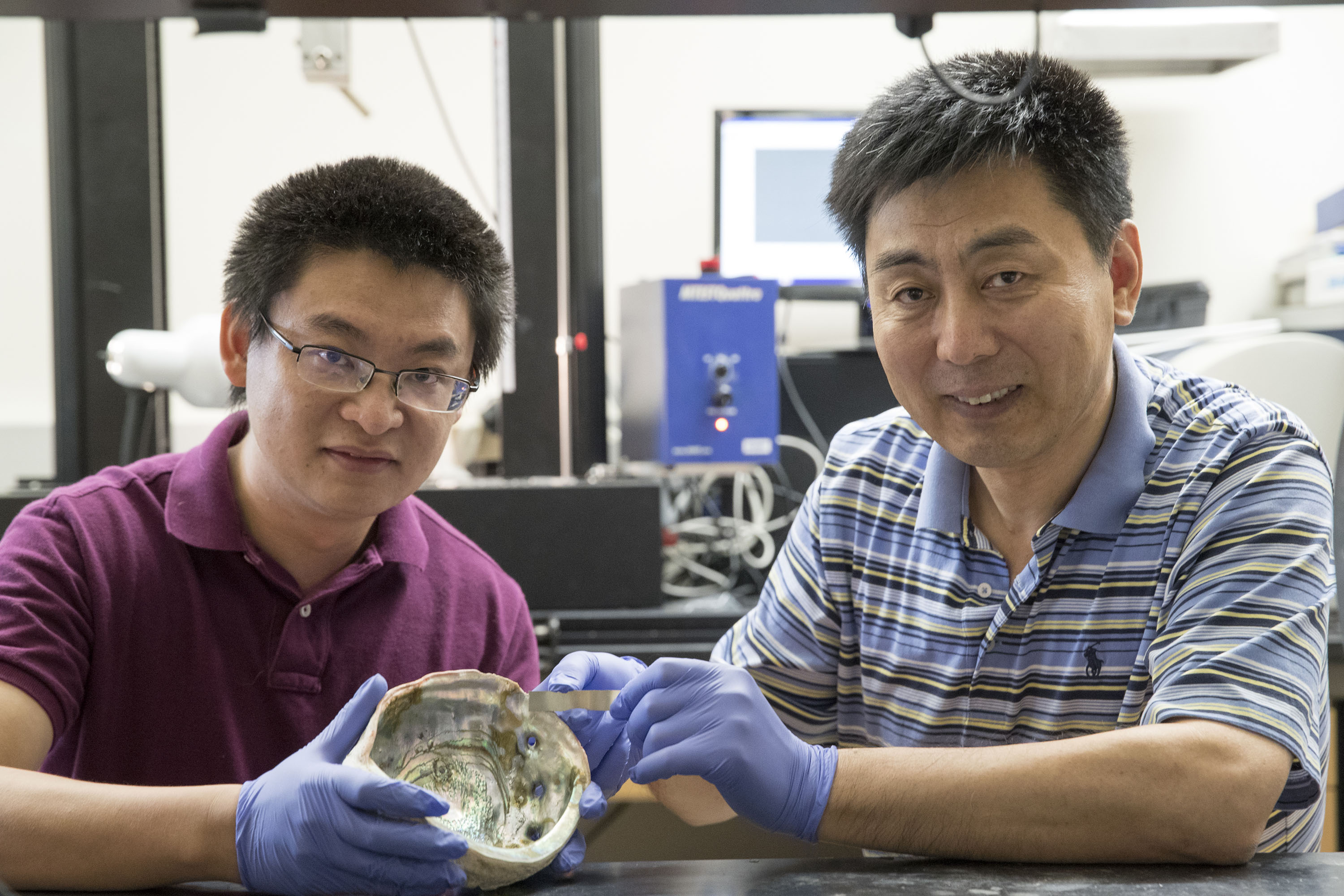The United States has abundant reserves of natural gas, which burns cleaner and more efficiently than gasoline, producing about 25% less carbon dioxide. That's better for the environment. Natural gas also is less expensive to extract and process than gasoline, requiring less refinement. It's also relatively cheap.
For these reasons, natural gas-burning motor vehicles are becoming more common as alternatives to gasoline-powered vehicles.
Unfortunately, natural gas burns hot, putting much more strain on metal engine components than gasoline.
But a University of Virginia materials engineer and a graduate student have developed and patented a new low-cost alloy that can withstand high heat and function optimally under the high-temperature conditions produced by combusting natural gas. The material, which layers graphene (a promising new semi-metal that is stronger than steel and as thin as paper) with nickel powder, maintains its integrity at 1,000 degrees Celsius (considerably higher than aluminum, at 660 degrees Celsius), making it a possibly good choice for natural gas engines.

"The material is lightweight, with an outstanding combination of strength and toughness, possibly making it ideal for crucial natural gas engine components, such as fuel nozzles," said Chris Li, Rolls-Royce Commonwealth Professor of Mechanical and Aerospace Engineering, who is leading the research. "Engine companies are looking for new materials for alternative fuels, and we have created a unique one."
The lightweight material, called "graphene superalloy," is lighter than other nickel superalloys (nickel withstands high temperatures well) because of the use of the lightweight graphene material. But Li said it is stronger and more durable than other metal mixes.
"The result is very strong and still lightweight, like the shell. I tell my students, if we pay attention to nature, we can learn from it."
- Chris Li
Li takes his inspiration from nature when designing materials. He said he is highly impressed by the shells - the natural body armor - of mollusks, such as oysters, clams and abalone, which are a brick-and-mortar-like layering of calcium carbonate drawn from seawater.
"Calcium carbonate itself is brittle and weak, but when set in layers - like brick and mortar - in the way shellfish do, it becomes extremely strong," he said. "That is what I looked at as we worked on our process of layering graphene with nickel; we mimicked Mother Nature's special recipe in the construction of an abalone shell. The result is very strong and still lightweight, like the shell. I tell my students, if we pay attention to nature, we can learn from it."
Li expects that natural gas engines will come into wide use in the next five years or so, especially for commercial trucks. He said trucking companies are looking for ways to decrease both their fuel costs and their carbon footprint. The U.S. government is seeking to make the nation more energy independent by using its own fuel reserves, and the departments of Energy and Transportation are supporting research into innovative materials that will accommodate alternative fuels and reduce costs and greenhouse gas emissions.
The UVA research is conducted primarily by Li and his graduate student Yunya Zhang. The work is funded by the National Science Foundation and has been published in Science Advances.






